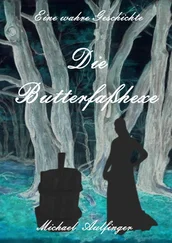My next surprise was that she towered over the adults in the village by as many inches as I towered over her. Standing among them, she might have been the queen of a race of delicate pygmies. All her subjects, though, were matrons, ingénues, or children, some of these last so small and downy that they resembled teddy bears or upright vervet monkeys. A couple of the younger women clutched infants in their arms.
This was civilization of a kind, a civilization in miniature, and I hung back to keep from disrupting its workings. Having just named the village Helensburgh, I decided that Helen’s people needed a name, too, something descriptive but far less formal than Homo habilis . As members of the family Hominidae (of which all-conquering Homo sapiens is today the only surviving species), they led me willy-nilly to the nickname Minids.
During my childhood in Kansas and Wyoming, people speaking to my mother about me would often say, “Why, Jeannette, he’s no bigger than a minute.” I was still small, but Helen’s diminutive people were even smaller, and I relished the idea of confronting all my mother’s old friends with the news that, yes, I was finally bigger than a Minid. For the first time in my life, in fact, I was tall .
The Minids quickly disabused me of the notion that Helen was their queen. After ascertaining her identity, one grizzled matron waved an arm at Helen (revealing a ridge of hair from her armpit to the underside of her wrist), chattered high-pitched imprecations, and furiously shook her head and mouth.
Bored, the children eventually wandered away, while the two mothers with infants sat down on the grass to poke and dandle them. Helen endured this scolding for two or three minutes, occasionally glancing at the gallery forest with a vacant expression, but finally tired of the game and lifted her club over the old woman’s shoulder to signal her weariness. Even though this gesture looked as much like a salute as a threat, the harridan ducked her head, turned sideways, and, bending deeply, exposed the enlarged labia minora of her genital region, a pink satin slipper.
Rather indifferently, Helen touched her club to the old woman’s tailbone, forgiving and dismissing her with the same gesture. Then she ambled off to another section of the clearing. Here she squatted and relieved herself. No one paid her any further mind, and the object of her parodic knighting went chattering back into her hut as if nothing had happened. By briefly assuming what primate ethnologists call the presentation posture, the harridan had both truckled to and appeased Helen. She had also underscored the ambiguity of Helen’s status among the Minids, for Helen was a female whom the other adult females treated both as a wayward sister (the scolding) and as an unattached adolescent male with formidable physical strength but no real community standing (the presentation posture). It was entirely possible that Helen had forgotten me the moment her back was turned, and that her disregard of my presence had enabled me to follow her back to Helensburgh. I did not like to think that her endocranial volume was so slight that it denied even a few out-of-the-way brain cells to a memory of me, but I could not ignore this possibility. Maybe I was nothing to her because I had literally made no impression on her understanding. A painful hypothesis.
Inwardly denying it, I watched her and the other habiline villagers go lackadaisically about their business—which seemed to consist primarily of half-hearted foraging and vigorous loafing.
The Minids—a band of approximately twenty-five, if I counted in the adult males who were probably out scavenging or hunting—had their capital at the overlap of two of the habitats of the East African mosaic: savannah and gallery forest. Because bush country, hills, and lakeshore territories also lay close by, the Minids were well situated to exploit a number of different food sources and survival modes. Still, I had not expected to find half of such a band taking its ease at midday without a single sentry.
Eventually I decided to withdraw from the encampment. If the males came back and found me ogling their women and children, I might find my visit to the Pleistocene cut short by their intolerance and outrage. At this early stage in my explorations, it was best to avoid arousing either suspicions or tempers.
Moving from tree to tree, then, I renegotiated the path that I had followed to Helensburgh—but I had gone no more than thirty or forty yards when I spotted a small, hairy figure approaching the village from farther down the path.
My counterpart halted and glowered at me like an offended policeman or teacher. It—he—was a Minid, with beady eyes, protruding lips, and a receding chin from which waggled a sparse, reddish-black goatee. Although he was several inches shy of five feet, he was clearly an adult, and a lankily muscular one whose small size did little to calm my fears of him. At length I took a cautious step forward and nodded apologetically at the habiline, who, keeping me in his sights, began to creep around me in a cunning arc. My principal concern was that he might be leading the other males home.
“Listen,” I began, “I’m sorry. It’s just that—”
From several feet away he lofted a globule of saliva and hit me squarely on the chin. Then, while I was wiping my face with the back of my hand, he scampered into the village screeching and chattering and calling down the wrath of Ngai. A terrible hubbub broke out among the encampment’s denizens, and I fled, my legs churning and my fancy indelicately conjuring up a dozen different ways to die at the hands of these protohuman creatures. Soon enough, however, I realized that they were not following me and that the Minid I had just encountered was probably their appointed sentry. I had caught him taking an unauthorized and ill-advised break, and each of us had scared the gibbering bejesus out of the other.
For a long time, then, I stood on the edge of the vast savannah trying to recover my wind and quiet the thunderous pounding of my heart. These things done, I began to laugh, and my laughter doubled me over into a self-protective crouch, and in this crouch, still laughing, I made myself consider what I must do next.
Morón de la Frontera
July 1963
ColonelRoland Unger, the vice commander of the SAC Reflex Base near Morón de la Frontera, approximately thirty miles southeast of Seville, reminded Jeannette Monegal of Douglas MacArthur whittled down to about two-thirds scale. In the light coming through his office windows from the flight line, the hair on his forearms sparkled like aluminum filings and his shoes radiated a dazzling ebony shine.
He stood beside his desk in crisp summer khakis, staring bemusedly at the tiny, dark-skinned child who was pushing his coaster chair into a cabinet on which stood the official photographs of the President of the United States, the Secretary of Defense, the Secretary of the Air Force, the Joint Chiefs of Staff, and the local base commander. The child seemed to be determined to topple these photographs, but Colonel Unger made no move to hinder or distract him.
“I am not a social worker,” he told the people who had requested this audience. “None of us was sent out here to see to the daily needs of displaced Spanish nationals. Orphans just aren’t our line.”
“What if they’re part American?” Jeannette asked. She and her husband, Staff Sergeant Hugo Monegal, had kept the abandoned child in their quarters in Santa Clara for the past five days, and the point of this interview was to make him a permanent member of their family. She had never wanted anything else quite so passionately, and her commitment to her goal both surprised and pleased her.
Читать дальше



![Ally Carter - [Gallagher Girls 01] I'd Tell You I Love You But Then I'd Have to Kill You](/books/262179/ally-carter-gallagher-girls-01-i-d-tell-you-i-lo-thumb.webp)








